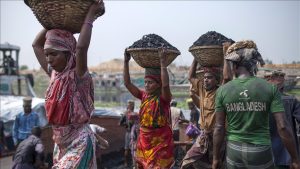
Informal Works
Lack of security in formal sector compelled street vendors to remain informal sector Street vendors are not in a position
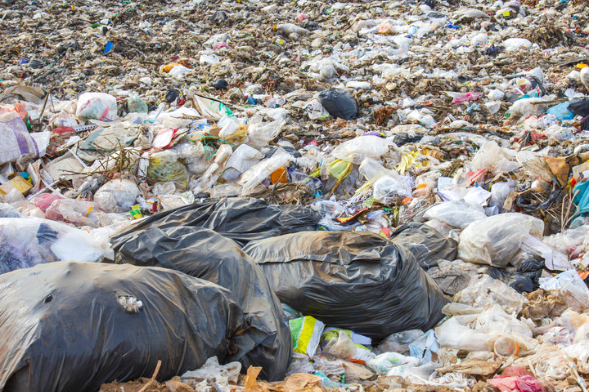
120,000 waste pickers in Dhaka, recycled 15% of the total generated waste daily amounting to 475 tons.
They are not formally involved in the Municipal Solid Waste Management system.
Waste pickers are often subject to social stigma, discrimination, and harassment by the community people, law enforcement agencies etc.
They are invisible in the national statistics and excluded from the social security system and other benefits of formal contracting.
Waste Pickers are an informal group of people engaged in searching, collecting, sorting, processing, and selling wastes and thus they earn their livelihood. Almost all the waste pickers had to migrate from rural areas to cities because of poverty, family crises, climate change effects, and natural disasters. According to a recent study estimate, there are 400,000 waste pickers in Bangladesh. In Dhaka alone, approximately 120,000 urban poor are involved in the recycling trade chain. 15% of the total generated waste in Dhaka amounting to 475 tons/day is recycled daily (Department of Environment 2009) mainly by the waste pickers. Waste pickers significantly contribute to promoting the urban environment and green economy of the country, but they are not formally involved in the Municipal Solid Waste Management (MSWM) system by the City Corporations and Municipalities. Though the waste pickers act as the primary processor in the recycling process and play a crucial role in the MSWM of Cities and Towns, they are not recognised as public service providers or “green workers” and have no formal link to City Corporations and Municipalities or industries.
They work as an invisible and unacknowledged workforce and do not have any legal accreditation for their services. Waste pickers are often subject to social stigma, discrimination, and harassment by the community people, law enforcement agencies, and different authorities. They are victims of discrimination because of their poverty, current state of indecent jobs, and lack of social and legal acknowledgement. As a consequence, they are excluded from engagement with people in neighbourhoods and waste facilities. The recent trend of restricting and prohibiting access of the informal waste pickers to waste, waste transfer stations, and municipal waste dump sites makes their livelihood more vulnerable and unsustainable. The ILO Decent Work Agenda (DWA) provides a useful, rights-based reference for the understanding of decent work (International Trade Union Confederation 2012).
Decent work is central to sustainable poverty reduction and sustainable development (ILO 2013). Although informal waste pickers contribute a lot to waste collection, recovery, reuse, and recycling but municipal authority neither pay for their works nor acknowledge their contribution to municipal waste management. As a result, despite all the contributions to the country’s recycling and green economy, and environment, they are invisible in the national statistics and excluded from the social security system (old age allowance, disability allowance, maternity allowance, widow allowance, vulnerable group feeding/development programme, etc.) and other benefits of formal contracting. So, engaging the informal waste pickers in formal jobs by the city corporations, legal accreditation, and acknowledgement of the contribution of the informal waste pickers is essential to ensure decent occupation and sustainable livelihood for them as citizens of Bangladesh.

Lack of security in formal sector compelled street vendors to remain informal sector Street vendors are not in a position
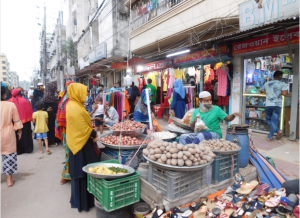
Lack of security in formal sector compelled street vendors to remain informal sector Street vendors play a significant role to
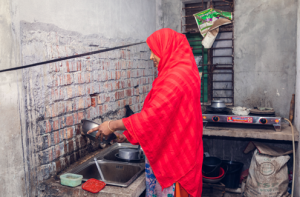
Domestic children and women workers suffer silently in Bangladesh. Domestic workers are a highly vulnerable group in Bangladesh. High proportion
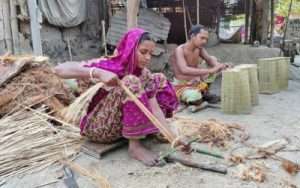
Home-based workers need better access to financial markets and better capacities to compete in product markets 71% of all women
F Haque Tower, Level – 7
107, Bir Uttam C.R. Datta Road
Dhaka – 1205, Bangladesh.